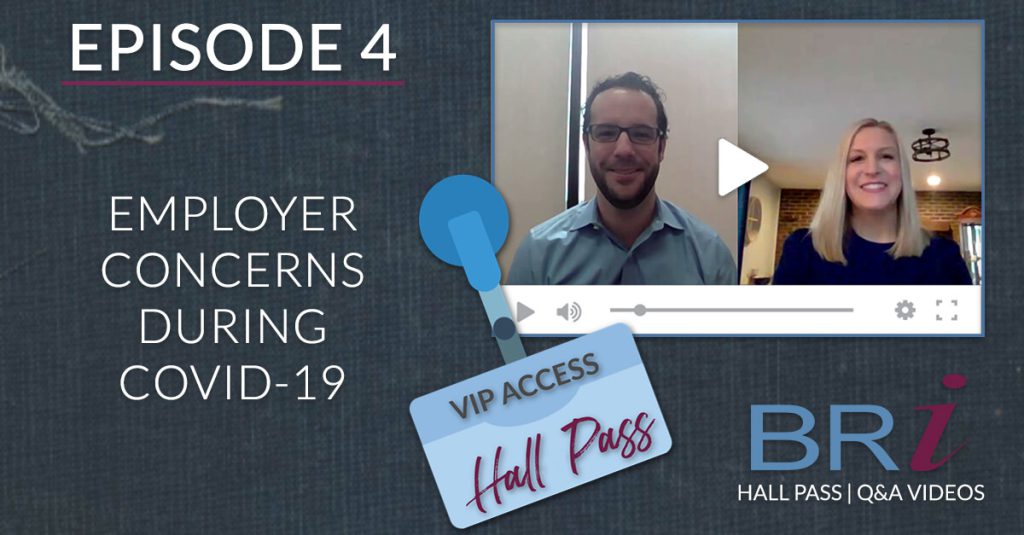In this week’s episode of Hall Pass, CEO Jason Hall discusses employer concerns during COVID-19 with Account Executive Team Lead Jaclyn Brosnan. Jaclyn provides information for employers on election changes for different account types, making changes to your plan design, and taking advantage of Specialty Accounts.
Check out the video below:
Employer Concerns During COVID-19
Question 1: What information/tips should employers know about election changes amid COVID-19?
- Medical FSAs: Because COVID-19 is still not considered a qualifying event, participants cannot make election changes to their Medical FSAs. Check out our blog on Medical FSAs and COVID-19 for more information.
- Dependent Care FSAs: Participants can make election changes only if there has been a change of cost or a change in provider. Parents may be encountering changes in costs since their children are out of school due to COVID-19. This would be considered a qualifying event since their cost of care would change.
- HSAs: Election changes can be made at any time. Keep in mind that under the CARES Act, HSA funds can be used to pay for telehealth services without the need to meet the minimum deductible of your health plan until the end of 2021. This might be a reason to keep your contributions intact.
- Commuter Accounts: Participants can make changes to their elections as needed. Employers can also reduce elections across the board if employees are no longer commuting due to COVID-19.
Read our blog ‘Do you need to make benefit changes because of COVID-19?‘ for more information on election changes.
Question 2: How can employers assist their employees during COVID-19 based on their benefits plan design?
Based on what is currently allowed by the IRS, employers can change eligibility requirements for their benefits to account for reduced employee hours during COVID-19. Employers can also do one of the following for their Medical FSA Plan:
- Introduce rollover: Introducing rollover allows plan participants to rollover up to $500 into the next plan year.
- Extend the run-out period: Extending the run-out period allows plan participants more time to submit claims, giving them more time to use their pre-tax dollars.
- Add an extended grace period (EGP): An EGP allows plan participants to use their pre-tax dollars an additional 2 1/2 months after the plan year ends.
Please contact your Client Operations Specialist as soon as possible to make changes to your Medical FSA Plan.
Question 3: What benefits accounts can employers use to assist employees during COVID-19?
BRI offers Specialty Accounts that allow employers to get creative with their benefits and reimburse employees for specific expenses. These after-tax accounts allow for flexible plan design. Employers choose what specific purchases the plan can reimburse and set any limits regarding eligibility, funding, and maximum spend per plan participant.
Here are some examples:
- Qualified Disaster Relief Payments (can be used to offer COVID-19 relief, as defined by IRS Section 139)
- Gym Memberships
- Wellness Reimbursements
- Tuition Reimbursements
- Student Loan Assistance
- Personal Home Office Expenses
- Utility Reimbursements
In addition, these accounts can be designed to pay for medical expenses for those not eligible for benefits or for specialty transportation expenses not eligible under a Commuter Benefit Plan (e.g., bike sharing, car pools).
Visit our BRAND NEW Specialty Accounts page for more information regarding these accounts. And, don’t forget to download our brochure while you’re there!



